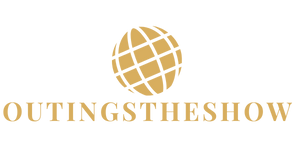Imagine sipping a café in Paris while confidently chatting with locals about the weather, politics, or the latest French film. That’s the dream, isn’t it? Learning French opens up a world of culture, culinary delights, and understanding of one of the most beautiful languages out there. Buckle up, because this guide will take you through the essence of French language learning, serving up a smorgasbord of resources like a delightful charcuterie board. Whether you are a complete beginner or looking to polish your skills, these tips are bound to make your journey less of a chore and more of an adventure. Let’s immerse.
Table of Contents
ToggleOverview of French Language Learning

French is not just a language: it’s a gateway to a rich culture and a global community. Spoken by over 300 million people, French is an official language in 29 countries, making it both relevant and useful. From its melodic pronunciation to its fascinating grammar, learning French offers an exciting challenge. Also, France is considered the birthplace of many artistic and philosophical movements, making mastery of its language a gateway to understanding influential literature, existentialism, and romance. So, whether you want to travel, work in an international environment, or impress that special someone, figuring out how to learn French efficiently is crucial.
Benefits of Learning French
Why should anyone bother to learn French? Well, there are plenty of compelling reasons. Not only can it boost career prospects, especially in fields like international business, tourism, and diplomacy, but it also enhances cognitive skills. Learning a new language strengthens the brain, improves memory, and even makes you more adept at multitasking. Plus, French speakers enjoy access to some of the world’s most exquisite films, literature, and art. Consider this language as a passport, giving users entry to cultures that are as diverse as the regions from which they hail. So, from professional opportunities to intellectual growth, the benefits are endless.
Essential Online Resources
In today’s digital age, learning French has never been more accessible. Numerous resources are at one’s fingertips.
Apps for Learning French
Mobile apps have transformed language acquisition into an enjoyable activity. Duolingo, Babbel, and Rosetta Stone stand out among the top choices. Each of these apps employs different learning methodologies to help users absorb vocabulary and grammar efficiently. With interactive exercises and engaging formats, users can practice at their convenience, making language learning a breeze.
Websites and Online Courses
Comprehensive online courses can deepen one’s understanding of French. Websites like Coursera and Udemy offer classes taught by experienced educators. Meanwhile, platforms like FluentU use real-world videos to enhance learning. Such resources allow for structured learning, ensuring users grasp the nuances of French before they step into real-world conversations.
YouTube Channels and Podcasts
For more auditory learners, YouTube channels like Learn French with Alexa and Practice French are invaluable. They provide engaging tutorials that can correct pronunciation and improve listening skills. Podcasts like Coffee Break French offer bite-sized lessons perfect for busy schedules. Whenever you’re cooking or commuting, tuning into these resources will make any mundane activity feel like productive learning time.
Books and Printed Material
While digital resources have taken the spotlight, traditional books still hold ample value in language learning.
Grammar and Vocabulary Guides
For those who appreciate the feel of a book in their hands, grammar guides like “Easy French Step-By-Step” or “501 French Verbs” can fortify foundational knowledge. They break down complex rules into digestible bites, perfect for mastering tricky conjugations. Vocabulary books help learners compile lists of crucial words helpful in daily conversations, thereby boosting fluency.
Fiction and Non-Fiction Books
Reading French literature exposes learners to real-world language usage. Starting with children’s books, like “Le Petit Prince,” provides an engaging yet straightforward entry point. For those seeking complexity, authors like Victor Hugo and Marcel Proust offer a rich array of vocabulary and sentence structure, propelling learners further into the language.
Supplementary Learning Tools
Diving into French culture enriches the language-learning experience.
Language Exchange and Cultural Immersion
Platforms like Tandem and HelloTalk enable language exchange with native speakers. These connections offer practical experience alongside cultural insights. Nothing beats practicing conversational French with someone who not only knows the language but lives it.
Community and Social Media Groups
Engaging with online communities can provide motivation and support. Facebook groups and subreddits dedicated to French language learners create spaces for sharing tips, resources, and experiences. Such interactions can form a sense of camaraderie, making the sometimes daunting journey a little less lonely.




